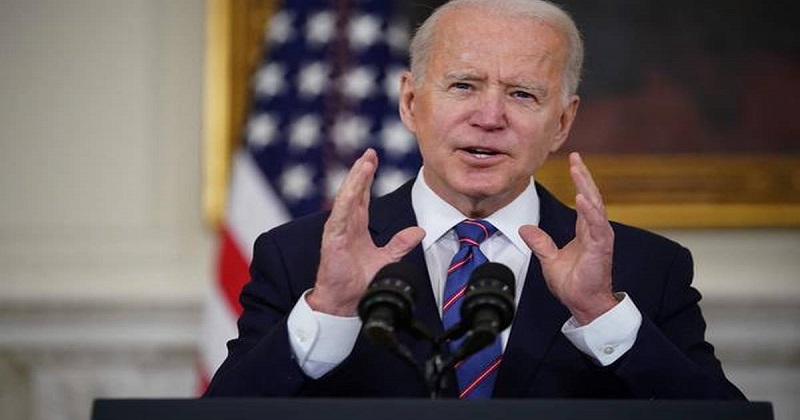
The Biden government has rejected that there are several ‘outright bans’ on the shipping of vaccine raw materials in reply to a request by vaccine production Serum Institute of India’s (SII) owner, Adar Poonawalla, to U.S. President Joe Biden, urging him to raise a prohibition on shipping.
“The Biden-Harris Administration’s top priority is saving lives and ending the pandemic. We reject any statement referring to a U.S. export ban on vaccines. The United States has not imposed any “outright bans” on the export of vaccines or vaccine inputs. This assertion is simply not true,” an administration executive, told.Mr Poonawalla, on April 16, had asked Mr. Biden to “lift the embargo” on raw materials to support the production of COVID-19 vaccines. SII , which gives ‘Covishield’, a version of the COVID-19 vaccine produced by the University of Oxford and AstraZeneca, uses bio-reactor bags from U.S. companies ABEC and GE Healthcare to develop cells for their vaccines, according to reports. It also applies filters, microcarrier beads, and cell culture media- all of which are in low supply.

“Respected @POTUS, if we are to truly unite in beating this virus, on behalf of the vaccine industry outside the U.S., I humbly request you to lift the embargo of raw material exports out of the U.S. so that vaccine production can ramp up. Your administration has the details,” Mr. Poonawalla said in a tweet. The U.S. is one important source of these materials, with reports proposing that deficiencies are an outcome of the U.S.’s Defense Production Act –an emergency law that needs domestic companies to prioritize federal(central) government purchase requests. Both Mr. Biden and his predecessor, Donald Trump, had summoned this law.
“The United States has committed to using all available tools, including the Defense Production Act, to expand domestic vaccine manufacturing and prioritize the supplies that can serve as bottlenecks to vaccine production to ensure that all Americans can be vaccinated quickly, effectively, and equitably,” the administration official told. The Biden administration has passed its stated vaccine availability and administration aims for the U.S. All adults in the country are presently eligible to get vaccines and at least half the adult population has accepted one dose of the vaccine.India’s Ambassador to the U.S. Taranjit Singh Sandhu had met with his equivalents and other senior U.S. administration executives to review the particular matters proposed by vaccine manufacturers. U.S. officials had said they will “positively consider” the matters proposed by the Indian side told.
Foreign ministers of the two countries – S Jaishankar and his counterpart Antony Blinken talked on the phone Monday. Both sides alluded to an agreement on “COVID -19” or “health” in descriptions of the call. India and the U.S. are cooperating on the production of five vaccines and are also part of larger joint ventures with other nations. The U.S., along with India, Japan, and Australia (the Quad) has declared that it plans to give at least one billion doses of COVID-19 vaccines to Southeast Asia and the Pacific by the end of 2022. This will cover the Johnson and Johnson vaccine, produced in partnership with Hyderabad-based Biological E.
The Biden rule also vowed 4 billion dollars to COVAX, a global vaccine accessibility initiative, in February. While funding and production responsibilities might address vaccine deficiencies over the medium to long duration, many countries are now facing shortages and in need of doses for their citizens presently.

Post Your Comments